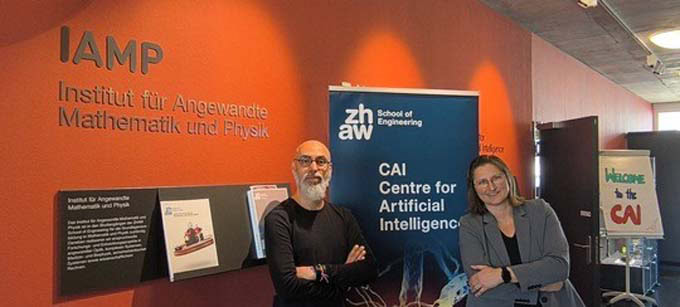In procurement today, more than just price-performance counts
The days when companies focused solely on their economic goals are over. Although not yet mandatory by law in most cases, more and more companies are voluntarily committing to integrating social and environmental concerns into their business activities. The IT consulting firm CNT Management Consulting explains the advantages of a sustainable purchasing process for companies today.

It was some years ago when the US economist Milton Friedmann claimed that the only social responsibility of business is to maximize profits. His famous quote, "The business of business is business," can be seen today, half a century later, as quite a contradiction to current developments. Meanwhile, the concept of corporate social responsibility (CSR) is on everyone's lips. "In recent months and years, quite a few companies have actually decided of their own free will to make their corporate activities more sustainable," emphasizes Wilhelm Heckmann, Managing Director at CNT Management Consulting AG in Zurich. Some companies are already going one step further and even integrating the topic of sustainability into their entire value chain, including suppliers and subsidiaries. What may sound like a disproportionately large effort at first glance can, however, also pay off for many companies on an economic level.
Numerous advantages of sustainable procurement
After all, a fully sustainable procurement process not only saves companies from environmental risks. Heckmann explains: "Future-oriented supply chain management can lead to an increase in the external perception of companies and thus significantly improve their public perception". One of the main reasons for resource-conserving procurement is also compliance with an increasing number of legal regulations and international principles. And a responsible purchasing process can also pay off economically. "Many companies that originally opted for sustainable procurement because of societal expectations now also recognize the economic, social and environmental benefits of making the switch," says Heckmann. Among other things, companies benefit by realizing efficiency gains, promoting the company's reputation and producing innovative products.
Agile and transparent supply chain
In addition to the long-term conservation of resources, most companies today attach great importance to the agility of their supply chain. "An agile supply chain means being able to react flexibly to changes as a company in order to recognize innovations on the market or innovation potential at an early stage and use them to one's own advantage," explains Heckmann. In order to enable comprehensible communication and fast reactions from all parties involved, an agile supply chain should be digitized and designed to be as transparent as possible. "The more transparent the supply chain, the faster and better change can be implemented," says Heckmann. An open communication culture within the company is also of central importance in this context, he adds.
Innovation in purchasing
In the development towards more sustainability in one's own company and especially in procurement, cooperation with suppliers and subsidiaries is crucial. It can be helpful to work with suppliers who are not only innovative themselves, but also in line with the company's own corporate philosophy in terms of ethical behavior. If suppliers also want to actively drive change, it is easier for a company to get involved. And in general, the purchasing department is also of great relevance when it comes to the process towards more sustainability: "As a central corporate building block, procurement is often at the heart of innovation and change within a company," Heckmann emphasizes. Ultimately, it is always the results such as sales or growth that count for companies - but in evaluating the purchasing department, one should by no means only look at the economic component. "In addition to the impact on financial performance, the impact on operational as well as environmental performance should also be included," recommends the Managing Director.
Source and further information: CNT Management Consulting AG









